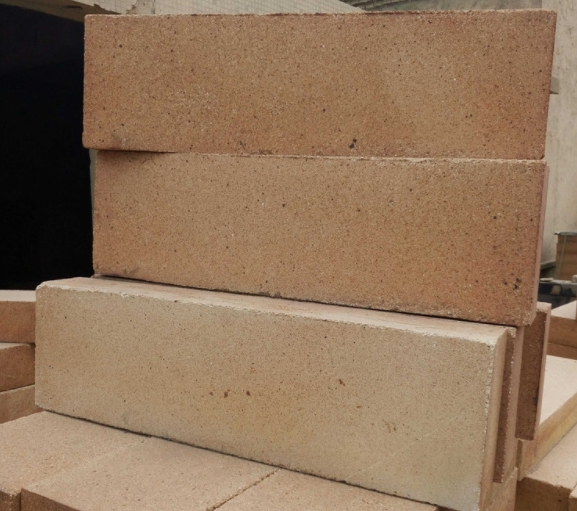- 11
- Jan
The main performance of magnesia brick
The main performance of magnesia brick
a. Refractoriness
Because the melting point of periclase (MgO) crystals is very high, reaching 2800℃, the refractoriness of magnesia bricks is the highest among general refractory bricks, usually above 2000℃.
b. High temperature structure strength
The high-temperature strength of magnesia bricks is not good, and the starting softening temperature under load is between 1500 and 1550°C, which is more than 500°C lower than the refractoriness.
c. Slag resistance
Magnesium bricks are alkaline refractory materials and have strong resistance to alkaline slag such as CaO and FeO. Therefore, they are usually used as masonry materials for alkaline smelting furnaces, but their resistance to acid slag is very poor. Magnesium bricks cannot be in contact with acidic refractory materials, they will chemically react with each other and be corroded above 1500°C. Therefore, magnesia bricks cannot be mixed with silica bricks.

d. Thermal stability
The thermal stability of magnesia bricks is very poor, and it can only withstand water cooling for 2 to 8 times, which is its big disadvantage.
e. Volume stability
The thermal expansion coefficient of magnesia brick is large, the linear expansion coefficient between 20~1500℃ is 14.3×106, so enough expansion joints should be left during the bricklaying process.
f. Thermal conductivity
The thermal conductivity of magnesia bricks is several times that of clay bricks. Therefore, the outer layer of the furnace built by magnesia bricks should generally have sufficient heat insulation layer to reduce heat loss. However, the thermal conductivity of magnesia bricks decreases with increasing temperature.

g. Hydration
The insufficiently calcined magnesium oxide reacts with water to produce the following reaction: MgO+H2O→Mg(OH)2
This is called a hydration reaction. Due to this reaction, the volume expands to 77.7%, causing serious damage to the magnesia brick, causing cracks or avalanches. The magnesia brick must be protected from moisture during storage.
